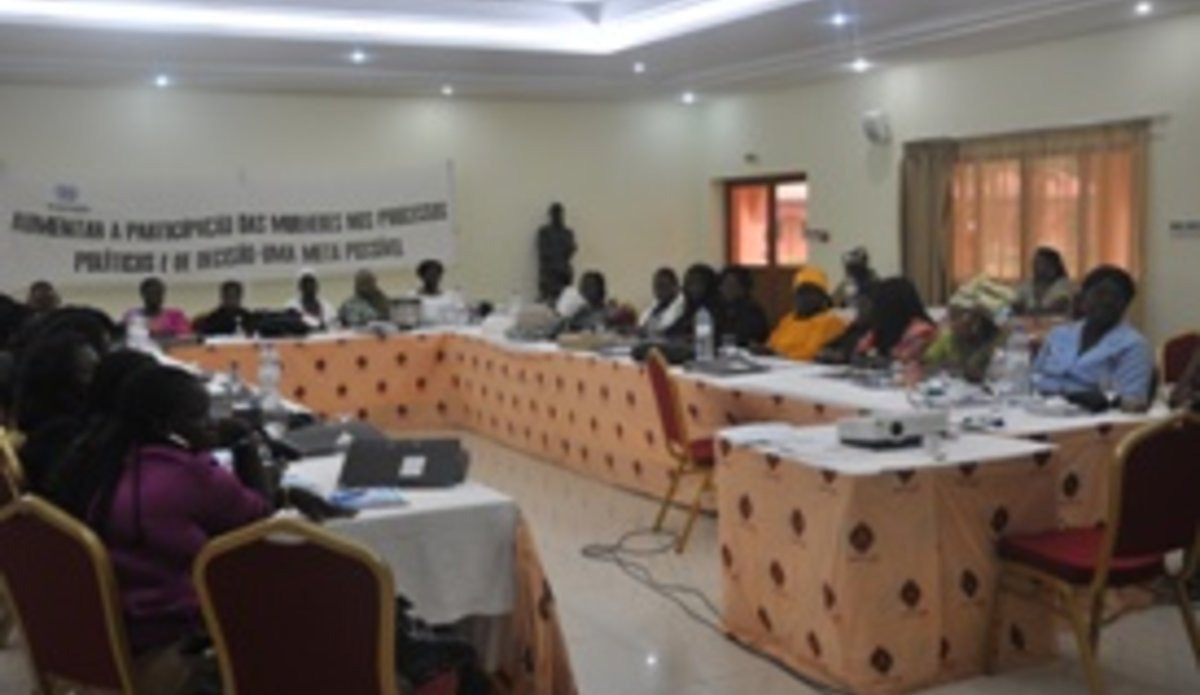Training and needs assessment on women's political participation in Guinea-Bissau
16 August 2012- UNIOGBIS Gender Unit and Political Section conclude today a needs assessment and cycle of training on women's political participation. The training targeted a total of 30 participants from political organizations, trade unions, media and civil society.
The eight-day activity entailed consultations regarding constraints and opportunities and enabled the definition of future strategies and action to strengthen women's participation in politics and in national decision making fora in different public spheres. This process produced tools to enable a selected group of eight women to replicate the training in the eight regions of Guinea-Bissau.
Since the outset of the Liberation struggle until today, Guinea-Bissau has undergone different phases regarding women's political participation. On the one hand, it has been possible to observe a significant role performed by women in nation building and the setting up of democratic processes; on the other hand, however, recurrent political instability coupled with discriminatory practices have led to a situation where evidence of women's active participation has been weakened. Illustration of this is that, the number of women holding positions in Cabinet and in the National Assembly have since faded. In the latest legislature, there were only 13 women out of 100 MPs and three women among 16 Ministers in the government. Within the new transition government there is no female minister and the Ministry of Women has been abolished.
While there are several NGOs and networks led by women and dealing with different aspects of women's human rights, such as the fight against female genital mutilation or sexual and gender based violence; the Regional organizations and networks, such as WIPNET or the Regional Network for Women in Peace and Security have a limited presence and reduced activity in the country. Above all, there is no national organization dealing systematically and in a comprehensive manner with women's social, political and economic empowerment.
In 2008, the UN supported the establishment of a Women's Political Platform, encompassing eight civil society organizations and all political parties. Most commonly women expressed their feeling that political parties used them in order to mobilize votes, but did not take them seriously as political candidates. It was felt that apart from the sensitization of political parties' leadership, activities should be undertaken to boost women's capacity, as well as their motivation to engage effectively in formal politics along their male counterparts.
In its resolution 2030 (20011), the Security Council emphasizes the important role of women in prevention and resolution of conflicts and in Peacebuilding, as recognized in resolutions 1325 (2000), 1820 (2008), 1888 (2009), 1889 (2009), and 1960 (2010). It also "underlines that a gender perspective should continue to be taken into account in implementing all aspects of the mandate of UNIOGBIS, and encourages UNIOGBIS to continue to work with national authorities in this regard and relevant stakeholders to improve women's participation in Peacebuilding".
 UN
UN





